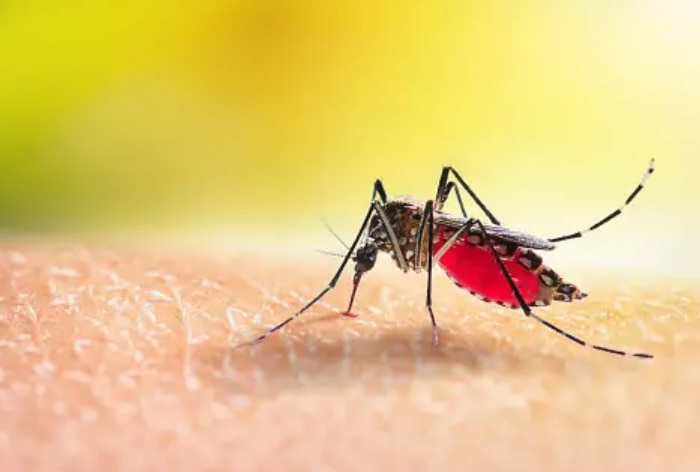Did you know that Aedes mosquitos, which also spread diseases like Zika and chikungunya, spread dengue? Typically, 24 to 48 hours after your fever goes away, you’ll start to see warning signs of severe dengue.

Dengue instances have been increasing for a few months, but in the last few days, there has been a noticeably larger increase in incidence among children, adults, and the elderly. Aedes aegypti mosquitoes, which more frequently bite during the day than at night, transmit the vector-borne disease dengue by their bite.
Many people who contract the virus for the first time do not exhibit any symptoms of dengue, and it is possible that a person exhibiting signs of dengue for the first time is actually experiencing a second attack, which is typically more severe than the first. It’s crucial to keep an eye on your symptoms, and early indications of dengue should not be disregarded.
4 SIGNS AND SYMPTOMS OF DENGUE YOU CAN NOT IGNORE
- Consistent Fever: A persistent fever may indicate dengue symptoms. It includes skin bruising, blood in the urine, and blood in the stool, and is also known as the seven-day fever. People may also have a high fever, a bad headache, weariness, and discomfort in their muscles and joints.
- Rashes: A rash, which often emerges two to five days after the onset of the fever, is another identifying symptom. Skin bruising could result, indicating internal bleeding beneath the epidermis. These rashes resemble measles in appearance, however, they vary from chicken pox in that they repeat.
- Nausea And Vomiting: Other symptoms including pain behind the eyes, nausea, vomiting, and little bleeding from the gums or nose may also occur. These are among the intermediate dengue warning signals, which means that if you don’t get immediate medical help, your condition could get worse overnight.
- Internal Bleeding: Thrombocytopenia (destruction of platelet cell count) results from advanced dengue fever symptoms. Additionally, it causes serious intestinal bleeding, which results in blood passing through stools.
There is no specific therapy for dengue fever, thus stabilizing the patient requires minimizing severe symptoms. Never ignore a long-lasting disease or persistent symptoms because they can lower the likelihood of death if treated quickly.

Don’t Miss Out on the Latest Updates.
Subscribe to Our Newsletter Today!

